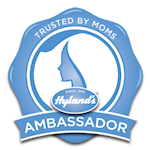
This post is brought to you by the folks at STOP (formerly known as Safe Tables Our Priority) who were gracious enough to put together this very important post for you, my readers. We know most of you are Moms, whether soon-to-be, new, or old and we want to make sure that you have access to this very important information regarding foodborne illness, especially in this time when the economy is sluggish and a lot of parents are overwhelmed and may not have the time to inform themselves. I hope you’ll take the time to read this whole post for the sake of your children and yourself.
STOP is an amazing resource for anything food-illness related, from consumer tips and stories to alerts about the latest outbreaks, to step-by-step instructions on what consumers should do if they find themselves sick. You can read more about STOP and their endeavors at www.stopfoodborneillness.org
Foodborne Diseases
A disease is called “foodborne” because a person most often becomes ill from eating or drinking water that has been contaminated with germs from dirt, animal feces or human feces. However, once these germs infect a person, they can be transferred to other people. Thus, “foodborne” diseases can be spread by people, changing tables, daycare centers, or swimming pools. The spread of germs may be prevented with thorough hand washing.
In babies or children, today’s foodborne disease germs like Salmonella and E. Coli 0157:H7 can cause serious, life threatening illness within hours or days.
To kill foodborne germs it is important to cook foods to the proper temperatures. To prevent foodborne disease in your family, it is also important to refrigerate leftovers immediately, and clean surfaces, counters, utensils, and hands often. Use separate knives, utensils, plates, and cutting boards for raw meats, poultry and fish because juices may contain germs. These germs can contaminate fruit and vegetables and cooked meats if the same equipment is used.
As A Parent, You Need to Pay Special Attention to the Following Types of Foods:
Soft, Unprocessed Cheeses – Do Not Serve To Children
Soft cheeses made from unpasteurized milk such as queso fresco, feta, brie, and blue cheese can harbor a germ called Listeria. In babies, it can cause a brain infection, which can lease to brain damage. In pregnant women, it can cause a stillbirth very late in a pregnancy. Be sure the soft cheeses you give your baby have been made from pasteurized milk.
Poultry And Ground Meats – Must Be Cooked Completely Through
When an animal is slaughtered and butchered, the meat may come in contact with germs and animal feces. On many types of meat, these germs will be on the outside where they can be killed while cooking.
However, in whole poultry, hamburger or chopped, mixed meats like hotdogs, bologna or salami, the germs can be on the inside. Hamburger should be heated to 160 degrees inside to kill E. coli bacteria. It is very important to use a thermometer (instant T-stick types are great for this) since you CANNOT tell if it is cooked enough by its color. Poultry should be heated to 180 degrees inside to kill Salmonella. Hotdogs and cold cuts, although already cooked, should be heated until steaming to kill Salmonella.
Fish, Sushi, And Shellfish – Must Be Cooked Completely Through
Shellfish such as shrimp, crab, clams, and oysters can contain life-threatening bacteria and viruses. Raw fish like that found in sushi can contain parasites. Children should not eat, sample or taste raw or lightly cooking seafood products, particularly oysters.
Unpasteurized Milk Or Juice – Serve Only Pasteurized Juices And Milk
Raw milk can contain germs including Salmonella and E.coli 0157:H7. Mass produced fresh juices including aguas frescas and smoothies, may contain fruit that has come into contact with dirt or contaminated water. Pasteurization is a heat process that kills germs in liquids. The Food and Drug Administration (FDA) and the Centers for Disease Control and Prevention (CDC) advise that children should drink only pasteurized juices and milk.
Honey – Do Not Serve To Children Under Age One
Honey can contain a spore that causes botulism, a disease that causes increasing paralysis. The AAP recommends that children under one year of age should not be given honey unless the product has been certified to be free of C.botulinum spores
Eggs – Must Be Cooked Until Dry
The eggs you buy contain Salmonella inside the shell. To kill Salmonella, eggs must be cooked thoroughly, hard-boiled or scrambled until dry. Examples of foods that contain undercooked eggs are: soufflés, eggs sunny side up, soft boiled eggs, fresh Caesar salad dressing, some homemade frosting, raw cookie and cake batter, and French toast. Children should eat only thoroughly-cooked eggs and egg products.
Fresh Fruit and Vegetables – Inspect and Rinse Thoroughly
When choosing fresh fruit and vegetables, always looked for undamaged produce, which does not show signs of being dropped, caked-on dirt or contact with birds or worms. Rinse fresh fruit and vegetables thoroughly under running, potable water. Children should not consume uncooked sprouts because sprouts have caused frequent outbreaks of Salmonella and E. coli 0157:H7. Check the latest FDA advisories for different types of produce or visit: www.cfsan.fda.gov
Use Caution With These Places
Swimming Pools
Sick children who swim in public pools can spread their germs to the water. Healthy children that drink swimming pool water can then get the same germs. Be sure to ask your public swimming pool manager whether they are putting enough chlorine in the pool.
Swimming: Lakes and Other Bodies of Fresh Water
Be sure that fresh bodies of water in which your children swim are approved as safe by contacting local health authorities and verifying the conditions of the water.
Potlucks, Parties and Picnics
Other people may not be aware of the new information about foodborne germs. Ask what foods are being served and be careful that the food has been prepared safely when you send your child to birthday parties, community potlucks, or picnics.
Restaurants
If a restaurant serves your child a food that is undercooked, send it back. Do not frequent a restaurant that looks dirty.
Daycare and Public Changing Tables
Be sure that your daycare providers understand the risks of foodborne germs. Changing tables should be cleaned frequently and workers should wash their hands every time after changing diapers and before preparing food. Do not put your child directly on a public changing tables.
If Your Child Gets Diarrhea…
Your child will have diarrheal illnesses during his or her childhood. Foodborne germs cause stomach pain and severe diarrhea. Sometimes the diarrhea will be accompanied by vomiting, a fever, or the bowl movement may contain blood. A child can loose weight and become dehydrated very quickly. Should you suspect your child is becoming dehydrated or suffering from an unusual diarrheal illness, if you believe the diarrhea might have blood in it, or you observe a dramatic change in behavior, contact your pediatrician immediately. Do not allow your child to be treated with antibiotics until the source of the illness is identified; the wrong antibiotic can make your child worse. Do not treat your child with a medicine that stops or slows down the diarrhea.
photos courtesy stock.xchng








